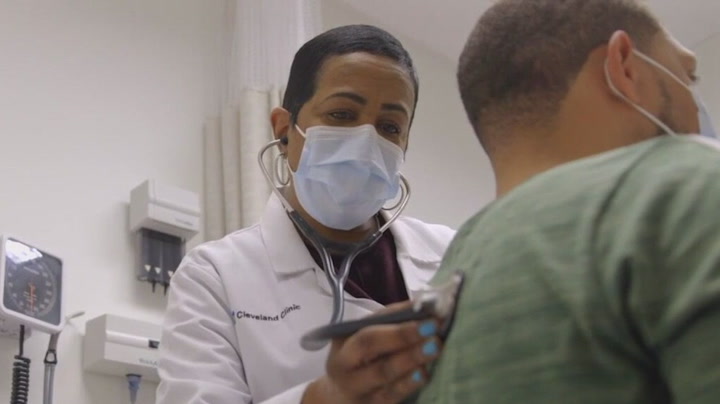High blood pressure can lead to a life-threatening heart attack or stroke
Nearly half of U.S. adults suffer from high blood pressure, with new guidelines released by the American Heart Association and the American College of Cardiology highlighting two steps people should take to help slash the risk it brings.
High blood pressure is a medical condition that can lead to an increased risk of cardiovascular disease, including heart attack, stroke, and dementia. It occurs when the force of your blood pushing against the walls of your blood vessels is too high, potentially damaging the vessels.
Medical experts say the necessary steps are relatively simple. Stay away from overly salty foods, such as French fries and pizza. Also, you might want to reconsider that third drink.
“High blood pressure is the most common and most modifiable risk factor for heart disease,” Dr. Daniel Jones, dean and professor emeritus of the University of Mississippi School of Medicine, said in a statement released with the guidelines.
“By addressing individual risks earlier and offering more tailored strategies across the lifespan, the 2025 guideline aims to aid clinicians in helping more people manage their blood pressure and reduce the toll of heart disease, kidney disease, Type 2 diabetes, and dementia,” he explained.
Here’s what to do…
Limit your sodium intake
The majority of Americans are eating too much salt, which can increase blood pressure.
On average, we consume about 3,400 milligrams each day, or 1.5 teaspoons. But national dietary guidance recommends that we stick to less than 2,300 milligrams, or about a teaspoon.
The new guidelines recommend moving toward an ideal limit of 1,500 milligrams a day – or at least less than 2,300 milligrams.
You can reduce sodium intake by checking food labels, preparing your meals, making low-sodium choices at restaurants, reducing portion sizes, limiting condiments, and washing vegetables and canned foods before eating to remove any added sodium.
Don’t drink as much – or stop outright
Drinking an excessive amount of alcohol can also negatively affect our heart health.
Men should not drink more than two drinks a day, and women shouldn’t have more than one, according to the American Heart Association.
“The takeaway is what you probably already knew: If you choose to drink alcohol, stick to moderate levels of drinking, and don’t overdo it,” Johns Hopkins Medicine advised.
But ideally, just don’t drink, the association says. Alcohol consumption has been tied to cancer, as well as liver and heart disease.
In the past two decades, rates of cancer and liver disease deaths tied to drinking have skyrocketed.
Is there anything else?
Eat a nutritious diet and maintain a healthy weight.
Also, make sure to stay physically active and manage stress with exercise, including yoga.
“Addressing each of these lifestyle factors is especially important for people with high blood pressure and other major risk factors for cardiovascular disease because it may prevent, delay or treat elevated or high blood pressure,” the association said.
Stay ahead with the latest updates!
Join The Podium Media on WhatsApp for real-time news alerts, breaking stories, and exclusive content delivered straight to your phone. Don’t miss a headline — subscribe now!
Chat with Us on WhatsApp




